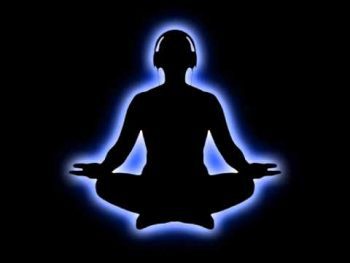Guest writer for Wake Up World
Meditation training program can have measurable effects on how the brain functions even when someone is not actively meditating. The effects are even more pronounced with music. In a recent study of adults with early memory loss, a West Virginia University research team lead by Dr. Kim Innes found that practice of a simple meditation or music listening program may have multiple benefits for older adults with preclinical memory loss.
Published research has demonstrated that the practice of regular meditation can increase brain density, boost connections between neurons, decrease symptoms of depression and anxiety, provide clarity of thought, and increase positive mood endorphins. Other published studies have shown meditation can improve physical functioning, decrease chronic disease risks, and enhance overall quality of life.
In this randomized controlled trial, 60 older adults with subjective cognitive decline (SCD), a condition that may represent a preclinical stage of Alzheimer’s disease, were assigned to either a beginner meditation (Kirtan Kriya) or music listening program and asked to practice 12 minutes/day for 12 weeks. As detailed in a paper recently published by the Journal of Alzheimer’s Disease, both the meditation and music groups showed marked and significant improvements in subjective memory function and objective cognitive performance at 3 months. These included domains of cognitive functioning most likely to be affected in preclinical and early stages of dementia (e.g., attention, executive function, processing speed, and subjective memory function). The substantial gains observed in memory and cognition were maintained or further increased at 6 months (3 months post-intervention).
Several previous studies have supported the hypothesis that meditation training improves practitioners’ emotional regulation. Neuroimaging studies have found that meditation training appeared to decrease activation of the amygdala — a structure at the base of the brain that is known to have a role in processing memory and emotion
As explained in the research team’s previous paper (J Alzheimer’s Dis. 52 (4): 1277-1298), both intervention groups also showed improvements in sleep, mood, stress, well-being and quality of life, with gains that were that were particularly pronounced in the meditation group; again, all benefits were sustained or further enhanced at 3 months post-intervention.
The findings of this trial suggest that two simple mind-body practices, Kirtan Kriya meditation and music listening, may not only improve mood, sleep, and quality of life, but also boost cognition and help reverse perceived memory loss in older adults with SCD.
Meditation prevents stresses from getting into the bodily system and already pent up stresses are let out. Both happen simultaneously and we tap the source and joy of what we are. This all affects memory. As this state consumes us more and more, we become happier, anything we see, we feel, we look at, becomes more intense and more beautiful. Each of our senses then does the job of all the other senses too. Our knowledge increase and becomes more intuitive. Our consciousness makes us feel that our body is part of the whole, part of the entire creation and the entire creation is part of us.
Previous articles by Josh Richardson:
- Scientists Discover That Bacteria Have a Collective Memory
- 20 Sources of Pain in the Body are Each Directly Tied to Specific Emotional States
- Ways To Connect To The Earth and Others
- Fascinating New Study Shows How Emotions Are Mapped On The Human Body
- The Electromagnetic Field is Depleted in Those Who are Unhealthy
- Don’t Know What You’re Passionate About? Here Are 15 Ways To Discover It
- 9 Reasons You Need To Be Giving and Receiving Hugs Every Day
- Study Confirms That Matters of the Heart Directly Influence the HEALTH of Your Heart
- 15 Ways to Create a Sense of Gratitude in Your Life
- Photographer Shows Proof of Amazing Similarities In Human Templates Between Complete Strangers
About the author:
Josh Richardson is blogger, healer, and a constant pursuer of the natural state of human consciousness.
This article reposted with permission from PreventDisease.com

If you've found value in our articles, we invite you to support the release of our brand-new book, "Gratitude Practices for Kids: A Practical Guide for Adults to Instill a Spirit of Appreciation and Positivity in the Next Generation."
"Gratitude Practices for Kids" brings together over 25 innovative and accessible practices designed to enhance gratitude in everyday life. This comprehensive guide is backed by 17 scientific studies, ensuring each concept is grounded in research, underscoring our commitment to nurturing growth, emotional intelligence, and positive interactions between adults and children.
We encourage you to opt for the paperback version to celebrate this new release. Dive into its fresh pages away from digital distractions, allowing you to immerse yourself in the transformative practices it offers.
Over recent years, Wake Up World has faced significant online censorship, which has impacted our financial ability to operate. Moving into book publishing represents a strategic step to secure the ongoing funds needed to continue our mission. By purchasing Gratitude for Kids, you help us keep our content free and accessible to everyone, avoiding needing a paywall. With over 8,500 articles published in the last 13 years, we remain dedicated to keeping our valuable content open to all.








